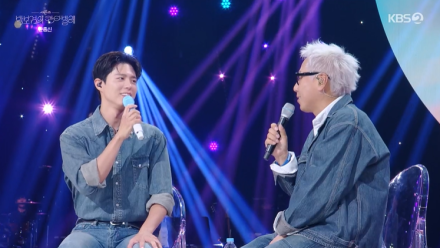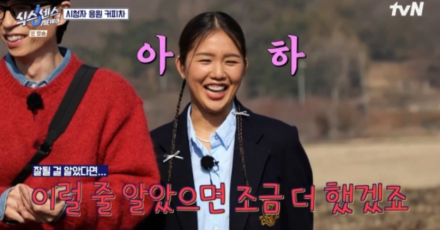Truth about Martial Law in South Korea
(K-POP) The Truth About Martial Law in South Korea
2024.12.3 pm 10:30 South Korea's President Yoon Seok-yeol declares martial law
Martial law means military rule.
Why did this happen in South Korea, a bastion of democracy in East Asia?
South Korea, the land of K-pop, K-drama, and K-beauty. Why did this happen in Korea, a country with such a friendly image?
To understand this, you need to know a little bit of Korean history.
Korea has been invaded more than 10,000 times throughout history.
Half of them are attacks from China, the other half are attacks from Japan.
This small country has been able to withstand all attacks for 5,000 years and has maintained its people and nation to this day.
It is almost the only country that has continued its dynasty, even resisting the Mongols of Genghis Khan.
They say that Koreans don't have armpit odor in their DNA.
The reason is that after five thousand years of war,
sometimes we fought and sometimes we hid,
In order to survive by hiding, you had to be able to avoid the eyes of people and hunting dogs. Anyone with a smelly armpit was discovered and killed.
The numerically inferior Korean army attacked the enemy mainly through surprise attacks at night, taking advantage of the terrain.
In order to ambush enemies and wild animals in the mountains, only soldiers who did not smell like their armpits were selected.
Over the thousands of years, only those who did not have odorous armpits were able to survive.
The armpit smell in the movie Parasite contains the story of the common people who are pushed out in the fierce battle for survival.
Korea has two unique emotions
It's Jeong(정) and Han(한).
Jeong(정): In order to continuously fight against external enemies, we needed to trust and rely on each other and have a high level of efficiency.
The morality and trust of Korean society today is a sense of community that was created over 5,000 years of fighting against external enemies. We are all family and brothers.
If we fight against each other, we cannot survive. We can survive only if we trust and stick together like family.
There is a tendency to view this negatively as nationalism, but it is a sentiment that has been established among Koreans for 5,000 years.
High efficiency is like a tug of war in a squid game, where cooperation along with strategy is essential for a small number of weak people to fight against the large number.
he razor-sharp dance moves of K-pop are all based on the fact that the strongest power is generated when the strings are pulled with the same rhythm.
Only by moving in unison could we stop the enemy with a small force.
Han(한): Even if you block the enemy, you will still take a lot of damage.
This ‘Han’ sentiment is an emotional resentment for the endless sacrifices of colleagues and family. This resentment, which has lasted for thousands of years, is embedded in the culture.
We have been appeasing this resentment in our hearts through tears.
Pansori(판소리) is a lament and a clarion call for the resentment of the heart.
The reason why just listening to the pansori of the drama Jeongnyeon makes me cry is because it is an emotion that squeezes out the deep sadness in the human heart that has continued for thousands of years.
We must understand Korean culture based on this history of wars spanning over 5,000 years.
There have been 3 major events in recent times.
1. In 1910, Korea under Japanese rule
2. In 1950, 625 Korean War
3. In 1998, IMF National bankruptcy
You need to know these 3 incidents to understand the recent Yoon Seok-yeol martial law incident.
1. In 1910, Korea under Japanese rule:
This incident occurred during World War II and should not be considered a simple occupation.
The Japanese army was a brutal and vicious occupying force that surpassed Hitler's Nazis, and left deep and many scars on Korea.
Japan procured war materials from Korea.
They built railroads to steal more resources faster.
Japan stole everything from Korea, including rice, iron, gold, cultural assets, and even women and young girls.
At that time, the Japanese military controlled all political and legal services and education in Korea.
Koreans suffered unprecedented oppression, including being banned from speaking their own language and having to change their names to Japanese names.
Many independence activists were killed by the Japanese. If you come to Korea, be sure to visit the Seodaemun Prison (서대문형무소).
As the US dropped the atomic bomb on Japan, Korea gained independence.
However, the Americans re-appointed all the officials who had been loyal to Japan, and Korea failed to punish the traitors.
That is the root of all the confusion that is occurring now.
Yoon Seok-yeol's martial law is also derived from it.
Because Yoon Seok-yeol's father was the first Japan scholarship student
Japan appeared to be leaving Korea, but it handed over the remaining military factories in Korea to its pro-Japanese Korean subordinates and began trading with Japan after the war.
Just like Argentina
it is similar to how Spanish rule remained in Argentina even after Spain's withdrawal.
2. In 1950, 625 Korean War
As a result of the war that broke out in Korea, which was occupied by pro-Japanese forces, Korea was divided into South and North again.
As a result of World War II, Germany was divided into East and West. However, instead of Japan, which lost World War II, Korea was divided into North and South.
The pro-Japanese faction in Korea started a war in Korea, and as a result, Japan became rapidly wealthy by selling weapons to Korea. Japan's prosperity was all based on the profits it gained through Korea.
Even in the 21st century, Japan wants war in Korea. They are trying to revive Japanese militarism by using pro-Japanese forces to turn Korea into a martial law dictatorship and start a war.
Korea became independent, but the ruling class was still occupied by pro-Japanese collaborators.
The Korean War in 1950 also occurred during the reign of the pro-Japanese President Syngman Rhee.
Due to the tyranny of pro-Japanese forces, South Korea was poorer than North Korea at that time.
Park Chung-hee and Chun Doo-hwan, who are representative of Korean dictatorships, were both pro-Japanese forces.
They ruled Korea with martial law and military dictatorship, and created countless collaborators.
Those pro-Japanese dictatorship collaborators are the current right-wing conservatives in Korea. In Europe, they are like neo-Nazis who call for the revival of Hitler.
They have a longing for the past military dictatorship. They are undemocratic and pro-Japanese militaristic war maniacs.
After decades of dictatorship, many right-wing civil servants were produced, and they receive state pensions and are still engaging in extreme right-wing activities both online and offline.
Not only government officials, but also various self-employed businessmen and chaebol conglomerates, in alliance with the military dictatorship, continued to exploit the Korean people and seize their wealth until the late 1990s.
Naturally, those who collaborated with the pro-Japanese military dictatorship gained more wealth and enjoyed greater benefits in employment and education.
The three areas in Korea where most pro-Japanese collaborators live are Yongsan, Gangnam, and Mokdong. Psy's Gangnam Style is a mockery of the immoral pro-Japanese collaborators who amassed that wealth.
Most Korean immigrants who settled overseas, such as in the United States, South America, and Europe, are those who moved to other countries to escape the harassment of pro-Japanese groups.
Of course, some of the very wealthy immigrants living abroad are descendants of pro-Japanese collaborators.
This is the scene where a wealthy villain from a K-drama goes to study abroad.
The pro-Japanese dictators mobilized the military to massacre millions of innocent Korean citizens with guns and swords.
The violence and painful scenarios in Korean movies and dramas are all emotions derived from the pro-Japanese military dictatorship era.
What makes Korean celebrities' tearful acting so great is not just their acting skills, but also their painful recollection of the past. Their sincerity.
The evil deeds of the drama Glory are also based on the crimes of pro-Japanese collaborators.
3. In 1998, IMF National bankruptcy
In 1998, South Korea faced a major change.
Until then, South Korea had been occupied by pro-Japanese collaborators and military dictators, but in 1998, the power structure changed.
Globalist occupation of Korea. Neoliberalism.
Globalist including the United States have taken away shares from Japan, which monopolizes Korea's interests.
By using pro-Japanese elements in Korea, they will take all the yen and dollars out of Korea, paralyze the national economy, and force a national bankruptcy.
South Korea has no foreign currency, so it asks the IMF for a bailout.
The IMF orders the transformation of the closed conglomerate financial structure dominated by pro-Japanese forces into an open structure.
At this time, Japan handed over most of its control to the globalists.
However, this does not mean that Japan has completely withdrawn, and as a member of the globallist, Japan has also participated in the system that exploits South Korea.
As a result, on the surface, since 1998, Japan's ruling power has been pushed back.
At this time, Korea was granted the shiny facade of democracy in exchange for allowing globalists to invade the Korean economy.
At this time, the first democratic government was established in South Korea.
President Kim Dae-jung, experiencing the collapse of the country, began to plan for building a strong country.
So he invited Michael Jackson to Korea to ask for advice on fostering the cultural industry. K-pop was also first born at this time.
Bill Gates was invited to Korea to seek advice on promising future businesses. As a result, the world's first high-speed communication network infrastructure was built.
In 1998, pro-Japanese forces were driven out of Korea and the neoliberalism of the globalists was accepted, leading to the current Korea.
During the 10 years from 1998 to 2007, when a democratic government was established in Korea, Korea enjoyed material and cultural abundance.
4. The reemergence of pro-Japanese elements
But,
A decade of darkness comes to Korea, which seemed to be going smoothly.
From 2008 to 2017, pro-Japanese forces came to the forefront again.
Pro-Japanese collaborators who had been pushed back for 10 years are reappearing, and it is because of China.
As China rose, it supported pro-Japanese elements
that had been pushed back to sever ties between South Korea and the United States,
and the pro-Japanese elements regained their power.
China and Japan seem to be competing with each other, but when it comes to dealing with Korea, they are on the same page.
At that time, Japan's exports were also decreasing due to the rise of South Korea,
and China's communist system was also threatened by the rise of the democratic nation of South Korea.
Both China and Japan were jealous of Korea and had the same goal of destroying South Korea.
Just as the US restricted exports to China,
Japan pressured by restricting exports to South Korea,
and China blocked exports by completely banning K-pop.
The pro-Japanese government in South Korea also created a blacklist of celebrities,
preventing investment in K-pop artists and directors
who refused to promote the ideology of the pro-Japanese dictatorial military,
and blocking them from appearing in dramas and movies.
Most of the entertainment industry workers who were disrupted were internationally skilled, and this was in line with Japan and China's strategy to undermine Korea's competitiveness.
There have been rulers in the past who have hindered the development of their own country for the sake of other countries.
History has called them traitors(친일 매국노).
Exports are mainly targeted at neighboring countries.
South Korea has been selling Korean products and K-pop to neighboring countries such as Japan and China, but with this being completely blocked, South Korea is once again in danger of ruin.
Because of this,
in order to avoid interference from neighboring countries, K-pop was promoted to distant places such as Europe, North America, and South America.
As a result,
rather, it became a huge hit worldwide.
Rather, China and Japan's interference has helped South Korea.
5. COVID. A great crisis is a great opportunity.
Containment of China and Japan
After a decade of darkness, the economy was struggling and the people were disappointed with the right-wing pro-Japanese faction.
Five years of democratic rule have returned
But,
Unfortunately, the coronavirus outbreak occurred, and the economy, which had been declining, fell into the abyss.
The first case of COVID in South Korea was in Daegu, after she returned from a visit to China.
She went against government policy and traveled around the country, infecting people with an unusually even spreadness.
Daegu is known as the holy land of the right wing and is a stronghold of pro-Japanese collaborators.
The headquarters of numerous pseudo-religions are located here, and they praise and spread pro-Japanese military dictatorship ideology in the name of religion.
Fortunately,
the efforts of the democratic government enabled successful quarantine, and this information spread around the world, becoming an opportunity for South Korea's COVID-19 K-quarantine to be widely introduced.
Rather, we successfully overcame this difficulty and increased exports more than the previous pro-Japanese government, and our hourly wage also surpassed that of Japan.
Per capita national income surpassed that of Japan, which had a great impact on both Japan and China.
From Japan's perspective, they were gripped by a sense of anxiety that if they delayed any longer,
they would be completely pushed out by Korea.
6. The reemergence of pro-Japanese elements
As South Korea's per capita national income surpasses Japan's, Japan allies with China and begins to attack South Korea again.
By deploying a large number of commenters to manipulate public opinion and incite fake news communities,
they are throwing Korea into chaos and putting a pro-Japanese figure in the presidency again.
That person is Yoon Seok-yeol, who declared martial law this time.
Korea has been invaded 10,000 times over 5,000 years.
99% of those attacks are from China and Japan
The attacks are still ongoing
The confrontation between North Korea and South Korea ultimately has China and Japan behind it
They are trying to start a war by clashing North Korea and South Korea behind the scenes.
Korea is surrounded by China and Japan.
China and Japan are encouraging war in Korea
Ukraine-Russia war.
South Korea has been at war for decades. It is waging a 2:1 psychological war with China and Japan.
This psychological warfare is now threatening to escalate into an all-out physical war.
The only thing that can stop it is the Korean Wave fans all over the world.
We desperately need your help. Without your help, K-pop and K-culture will disappear.
That's what the Japanese and Chinese governments are actually trying to do.
Please actively participate and request your government to support the democratic forces of Korea, punish the right-wing dictatorship and pro-Japanese faction, and work to prevent the Korean War.
Martial law means military rule.
Military rule is a preliminary step to war.
The purpose of martial law by pro-Japanese forces is war.
With the help of people all over the world, we can preserve this beautiful culture and country.
But even without the help of the world, we will ultimately defend this country,
just as we have for 5,000 years.









댓글 영역
획득법
① NFT 발행
작성한 게시물을 NFT로 발행하면 일주일 동안 사용할 수 있습니다. (최초 1회)
② NFT 구매
다른 이용자의 NFT를 구매하면 한 달 동안 사용할 수 있습니다. (구매 시마다 갱신)
사용법
디시콘에서지갑연결시 바로 사용 가능합니다.